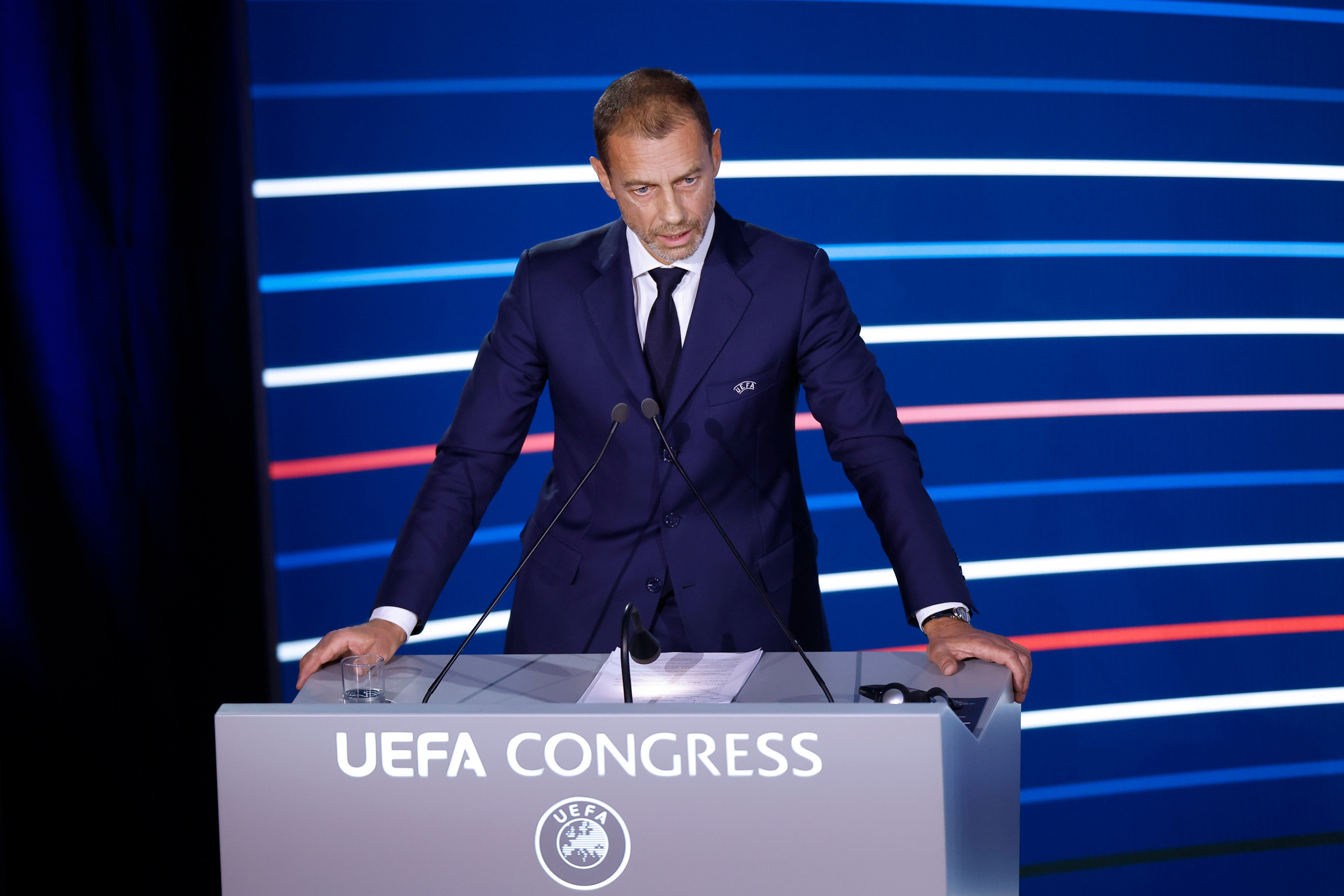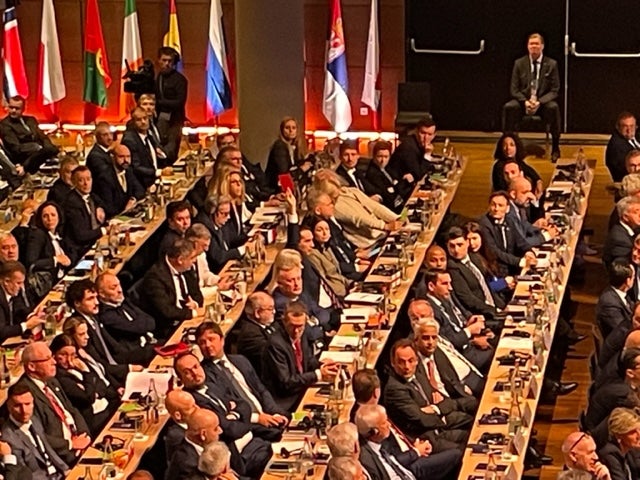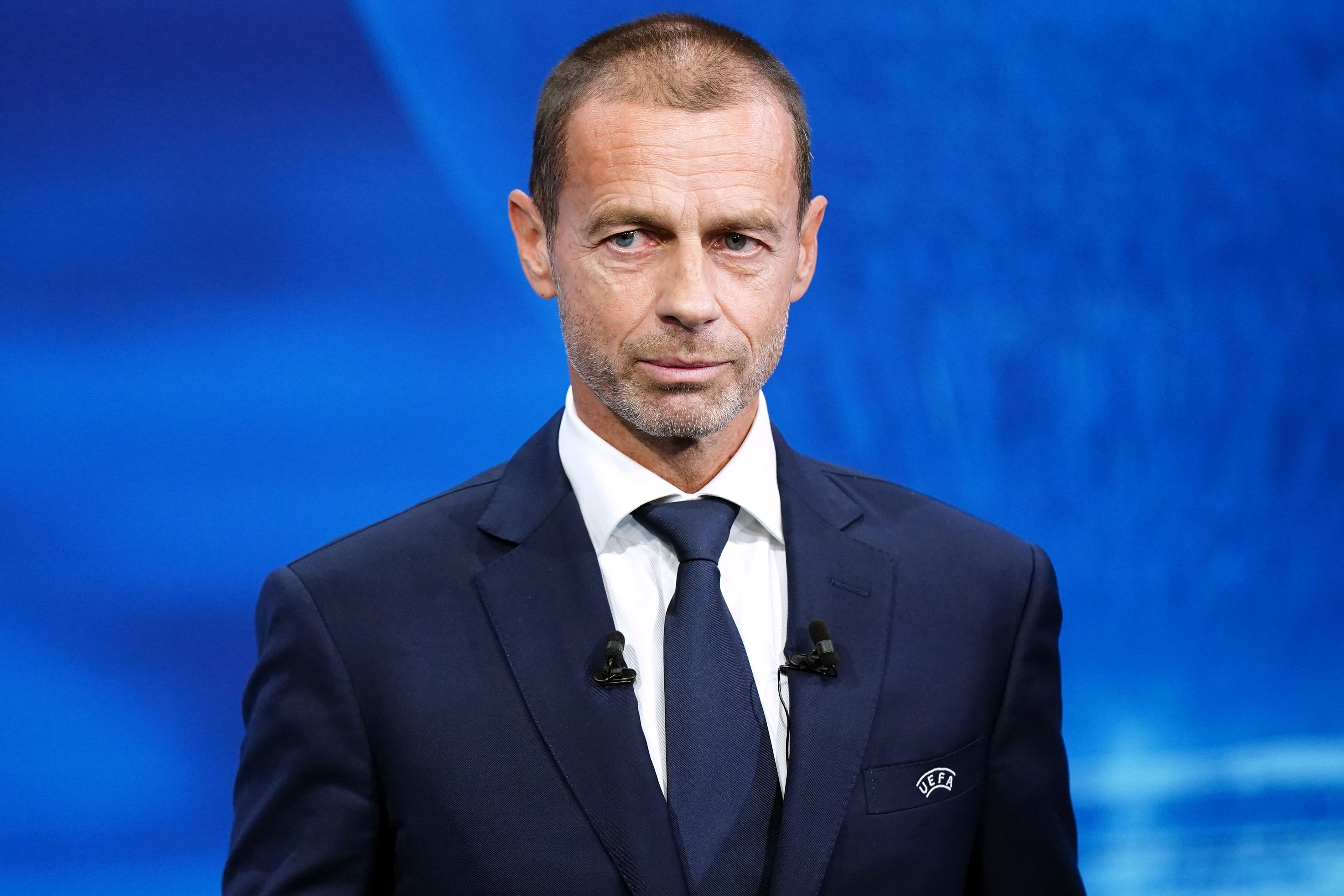Uefa president’s unexpected exit could yet have a twist in the tale
Comment: Aleksander Ceferin’s move comes amid mounting criticism but, as Miguel Delaney explains, the Slovenian’s rant after a perceived resignation at the Paris Congress leaves mystery surrounding his motives
With a statement that initially seemed as clear as you can get, Uefa president Aleksander Ceferin created a world of confusion. Such words might well describe a legacy that always lacked strategic coherence if the Slovenian does indeed step down in 2027.
In a rare press conference after the 48th Uefa Congress in Paris, however, Ceferin came out with the following. “I have decided, let’s say around six months ago, that I’m not planning to run in 2027 any more.”
So, Uefa could well have new leadership. That only opened up a host of new questions.
Ceferin’s announcement comes on the back of mounting criticism where he complained he is being cast as “Kim Jong-un”, due to statute changes that were voted through at Congress and could feasibly allow the Slovenian to stay in office for 15 years.
It created the beginnings of a rebellion in Uefa, with up to 10 federations having considered voting against the statute changes. The issue is one that had been raised among member associations months ago. It even caused an angry exchange between Uefa treasurer David Gill and Ceferin before the Euro 2024 draw in Hamburg, after the former Manchester United executive delivered an impassioned speech about good governance. That was followed by the shock resignation as Uefa chief of football by Ceferin’s personal friend, Zvonimir Boban, on an explicit point of principle.
Meanwhile, all of this attracted increased scrutiny from the European Commission and European Parliament about good governance, after that point was specifically stressed by December’s European Court of Justice ruling on the Super League. It was because of that legal case, and appeals to Uefa unity, that nine of those 10 “rebel” federations ultimately voted for the statute changes in the end. Many privately explained they felt it was too fraught a time. Some genuinely believed Uefa was under existential threat. In the end, only the English FA voted against the statute reforms, in an impressive show of principle of their own.
It was straight after that Ceferin announced he was “not planning to run in 2027 any more”, saying he was telling the media before he told anyone else, other than a very close circle who already knew.

The primary question is why create such a furore, when he could have just announced this months ago? Ceferin’s own explanation was the following: “I intentionally didn't want to disclose my thoughts before because of two reasons: first, I wanted to see the real face of some people and I saw it; I saw good and bad parts.
“And, of course, I didn't want to influence the Congress. I wanted them to decide not knowing what I'm telling you today because that's an honest decision. I have to say that it was actually amusing to watch all this hysteria around and at the same time getting all the messages of support from my federations.”
This explanation, to be blunt, is preposterous. So the president of the federation that runs European club football used its procedures to try and make some personal points; to test loyalty? Loyalty to who? How is personal loyalty to him relevant to any of this? What was the purpose of such tests? If that is the issue, why run the risk of subjecting Uefa to EU scrutiny at such a delicate time – because that is precisely what he did? How is that good for Uefa?
As well as some sideswipes at the media for reporting grave concerns from within the federation, Ceferin had some personalised criticisms of Boban. The Uefa president also incredibly claimed that the Croatian was one of the few people who knew that he would be stepping down.

“Now just two sentences about the self-proclaimed moral authority. The person you know when am I speaking about does not deserve a comment from my side but people who know him and we will make their own opinions,” Ceferin added.
“Just one sentence about his pathetic cry about morality. He was one of the rare persons who knew that I was not going to run in 2027. The moment that he got the info that I would disclose it after Congress he went out with his narcissistic letter. He could not wait because after my disclosure, his whining would not make sense anymore. Now think, whose personal aspirations are in question? And think, whose morality is in question?”
Ceferin used to frequently spend long drives from the Balkans to Uefa HQ with Boban, and knows he isn't given to speaking publicly. Attempts to reach the Croatian were met with refusals to comment. Nevertheless, those close to Boban insist that he was not told Ceferin would be standing in 2027. There were also additional questions as to why he would torch his career if the Slovenian had told earlier? Again, why did Ceferin not announce this earlier, to spare a lot of trouble?
There was no inkling of this, and it was even curious that the Uefa president chose to tell the media before his member associations. Some privately said they weren’t completely surprised since they believe Ceferin was beginning to feel pressure from media criticism and increased pushback against his presidency. Many pointed to erratic comments in his two interviews with English media in January.
No one in Congress seemed to know he would not run in 2027, though.
Again, it would have been helpful for European football democracy to ask Ceferin about this. His press conference only lasted three questions, though, and two of those were on the Super League. It was remarkably abrupt for someone who had just dropped such a bombshell.

Ceferin actually used the excuse of having to go to lunch to tell his member associations about his decision to avoid further questions. Off he went out the door, leaving his poor general secretary Theodore Theodoridis to clarify all of that.
Ceferin had earlier lambasted media that he’d never been directly asked about standing – despite this exact question being repeatedly put to his press office, and the fact the Slovenian rarely holds press conferences. It was as Ceferin was at his lunch that press officers closer to the president’s office began to talk of how he is “entertaining the idea” of not standing in 2027.
This raised a few eyebrows, especially given the tone of Ceferin’s statement. But there were the exact words. “I’m not planning to run in 2027 anymore.”
“Planning”, of course, is the keyword. It offers wiggle room. Plans can change. It reminded more than a few people within Uefa of Sepp Blatter. For now, most of this is very unclear, above all whether Ceferin will stand down after all.
Join our commenting forum
Join thought-provoking conversations, follow other Independent readers and see their replies
Comments


Bookmark popover
Removed from bookmarks